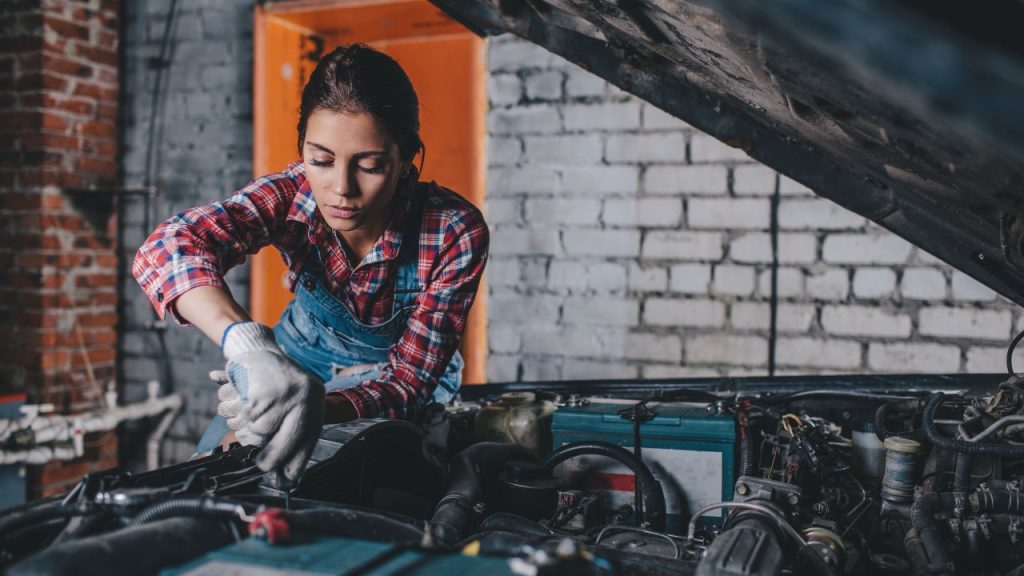Vasily Pindyurin/Getty Images
Key takeaways
- The onus is on you to find out if there’s a recall on a used car you want to buy — no law says the seller has to find out or disclose recall information to you.
- You can look up recall information on the National Highway Traffic Safety Administration database.
- If it’s a safety recall, the car’s manufacturer should cover the cost of the necessary repair.
If you’re considering buying a used car, you’ll want to determine if there’s an open recall on the vehicle — and, if so, whether it has been repaired.
Used car recalls are typically issued because of a problem or potential problem related to safety issues. While buying a used car can help you save money, it could cost more if a recall is in play. Unrepaired recalls could lead to a car fire or collision. Even if no one gets hurt, that could mean a jump in your car insurance rates.
Dealerships are only required to make repairs on new cars — in most states, they aren’t required to repair used vehicles or notify buyers of recalls. They may not even be aware of active recalls. You are responsible for researching the car’s history, but fortunately, there are easy ways to check for an open recall.
How to find out if there’s a recall on a used car
To find out if a car has been part of a recall, search the National Highway Traffic Safety Administration (NHTSA) database with a vehicle identification number, which is usually found on the lower-left part of a car’s windshield. You can also search for an open recall with the make, model and year if you don’t have the VIN.
The NHTSA database provides information about vehicle safety recalls within the past 15 calendar years, including recalls issued by major automakers, motorcycle manufacturers and even some medium and heavy-duty truck makers. If the recall issue has already been repaired for the VIN you look up, that recall won’t show up.
The NHTSA database does not have any data on international vehicles. It also does not include customer service recalls.
Bankrate tip
Check defect investigations
If you don’t find any recalls, you’re off to a good start. But your potential future car might have a known issue that just hasn’t reached the official recall stage yet. A recall often starts as an investigation. To be aware of those issues, you can review the NHTSA’s monthly investigation reports, which provide information about active defect investigations.
You may find that the car you want to buy is under investigation. If it is, stay abreast of the investigation to be aware of a recall.
What to do if a used car you want is part of a recall
If the used car you want to buy is part of a recall, don’t give up on it. Repairs shouldn’t cost the seller or buyer any money because the manufacturer is required to cover safety recall fixes.
Find the VIN
If there is a recall for a used car’s make, model and year number, get the car’s VIN from the seller. Once you have it, enter it in the recall section of the manufacturer’s website to determine if that specific car is part of the recall. Some manufacturer websites also note if the car has been repaired.
Get the car repaired
Recall laws vary by state, which means dealerships in your area may be legally required to make repairs before selling you a vehicle. Independent sellers are not required to repair used cars with an open recall under federal law, but they may still handle the repair for you. But even if you do have to handle the repair yourself, it won’t come out of your pocket — safety recalls must be done free-of-charge by the manufacturer.
Ask the owner for receipts
If the car you are buying has already been repaired, ask the owner for documentation and review it thoroughly. Only authorized dealerships that carry the car brand are able to perform recall repairs. However, independent mechanics can complete some car recall repairs at the owner’s expense.
Even if the recall repair was made, you should still verify that the work was done properly and thoroughly with a used car inspection.
Consider a certified pre-owned vehicle
To skip some of the headache, you can also shop for a certified pre-owned car. These have been inspected by the manufacturer and have a new warranty — and any recall repairs should also be taken car of. They are often more expensive than other used vehicles, so shop auto loan rates with multiple lenders to get the best deal.
Bottom line
Before purchasing a used car, research if the vehicle has been part of any safety recalls and whether the necessary repairs were made. The NHTSA is the best place to determine whether a recall has impacted a car you want to buy. If you discover an open recall on a used car you want, don’t let it deter you. Just make sure you take it to an authorized dealership to get the issue fixed.
To protect yourself after buying a used car, consider signing up for recall alerts issued by the NHTSA. You can receive these alerts via email or by downloading the NHTSA’s SaferCar app.
Read the full article here










